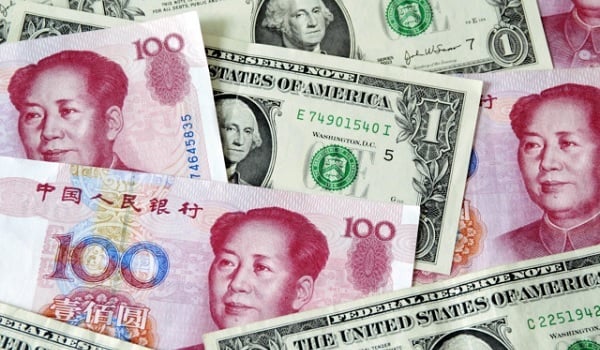
We have not yet begun to fight!
The Trump Administration’s August 5 designation of China as a currency manipulator marks a new crossing of policy lanes in US-China relations. In the many facets of that relationship and the rising tension between the two, America needs a clear understanding of our objectives and priorities.
Followers of trade policy know that matters of tariffs, quotas, and other “strictly trade” measures are usually kept separate from issues of monetary policy, at least formally. Currency levels inevitably affect trade and at times academics, politicians, companies, and officials question whether a country deliberately depreciates its currency for trade reasons. Japan in the 1980s faced this suspicion. But whatever the reasons, governments tend not to play currencies and trade measures against each other explicitly.
China’s central bank allowed the Yuan to drop through a market benchmark, apparently in response to President Trump’s announcement of a new round of tariffs. The administration’s “manipulator” designation, symbolic in economic terms, signals that the U.S. sees the linkage, and will engage China on that basis.
As policy measures cross into each others’ old lanes, who will link more issues together, and to what end? Is America out to counter China’s initiatives by exacerbating strains on the Chinese system? It seems not, given reports of the Trump Administration’s internal instructions for the August trade talks. But Chinese leaders could see an existential threat even if a U.S. administration only wants them to enforce patent rights. Is China’s harassment of an American diplomat in Hong Kong a linkage that reflects this fear? Conversely, might the Chinese think we attach lower priority to, say, political repression, than we actually do?
In recent history we seem to have tolerated “a degree of intellectual property theft and unequal market access in the belief that China was making some progress toward market principles and the rule of law,” and a hope that that would lead in the direction of more democratic practice. Today, Xi Jinping’s consolidation of governing power has dashed that logic. Xi also exhibits geopolitical ambition in the Belt And Road Initiative’s investments in Eurasian nations; militarization of islands in the South China Sea; even cultural influence campaigns. U.S.- China relations are entering a new mode.
Reviewing a broad backdrop of many issues and several decades, the observer can see U.S. priorities careening between human rights, economics, and geopolitics. China can always justify aggressive geopolitics toward us, as we might always swerve toward confrontation, but need never take our concern for rights and democracy to heart, as we always veer back to economics. Chinese leaders could all too easily see the swings as fecklessness masking hostile underlying motives: our protests over rights as interference to weaken them internally; our economic pragmatism as serving capitalist exploitation; and our security posture as hegemonic.
In the coming transformation in Sino-American relations, policymakers must clarify our essential purposes. Doubts about American goals, and even America’s nature, are rising. The post-modern age’s bewildering developments complicate the task. Coherence in national priorities becomes more difficult just as it becomes more important.
Amb. William Burns, in his diplomatic memoir The Back Channel, notes how “Shaping the principles of policy debate … is often the first step toward winning it.” Principles need not be controversial, but clarity is “critical to shape our approach and tactical choices,” especially as new issues, new technologies, and new developments keep changing the tactical landscape.
America has clear core principles, and today’s transitions give an opportunity not only to apply them, but to remind ourselves of our priorities. Principles for an approach to China might follow lines like:
Note that it is China’s choice to move toward or away from us. And, although the divergences run deep, even a neo-Confucian governing doctrine could admit of a modus vivendi with us. Meanwhile, the U.S. gives explicit voice to where we stand, guides our own actions by that principle, and affirms our nature to ourselves and the world.